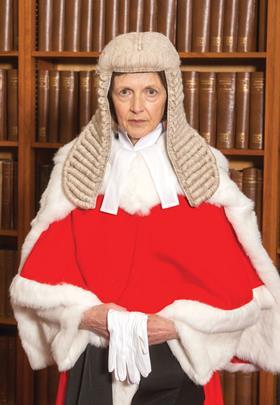Where Party A argues that he has a right to withhold inspection of a document (on grounds of litigation privilege), Party B may, pursuant to CPR 31.19(5), make an application to the court to decide whether Party A’s claim should be upheld. Can Party A withhold inspection of documents in circumstances where the right is said to have arisen out of proceedings to which Party A was not a party?

That was the question which came before Mrs Justice Moulder in the recent case of Minera Las Bambas SA & Others v Glencore Queensland Ltd & Others [2018] EWHC 286 (Comm).
Peruvian and English proceedings
Pursuant to a share purchase agreement (SPA), the claimants purchased 100% of the shares in Xstrata Peru SA, from the defendants. Xstrata indirectly owned the Las Bambas mining project in southern-central Peru and the first claimant became the direct owner of the project. After investigating the project, the Peruvian tax authority issued a tax assessment which increased the first claimant’s tax liability. The first claimant then commenced proceedings against the Peruvian tax authority challenging the tax assessment (the Peruvian proceedings) which are ongoing.
Under the SPA, the defendants assumed control of one of two aspects of the Peruvian proceedings in which the defendants had only acted in the name of the first claimant. The English proceedings concerned questions of interpretation of the SPA and a deed of indemnity, and whether the defendants were obliged to indemnify the claimants in respect of the Peruvian tax liabilities.
In the English proceedings and during the disclosure process, the defendants, on their Form N265, indicated that a certain number of documents attracted legal professional privilege. It later transpired that the defendants were seeking to assert privilege arising from legal proceedings in Peru. The claimants argued that the defendants were not entitled to assert privilege. This led to the defendants carrying out a further review of its documents, after which they formed the view that 25 of those documents did not meet the test for standard disclosure and were privileged. The claimants made an application to the High Court under CPR 31.19(5).
The parties’ arguments
The defendants argued (i) the 25 documents had not been disclosed and therefore claimants had erred in making their application which should have been made pursuant to CPR 31.12 (specific disclosure); (ii) even if the documents had been disclosed they did not meet the test for standard disclosure and therefore inspection should be refused under the court’s inherent jurisdiction; (iii) the documents attracted litigation privilege; and (iv) the court should resist inspection under its inherent jurisdiction because of the lateness of its application.

The claimants argued (i) any right to assert litigation privilege belonged to the first claimant and therefore it was not open to the defendants to assert that privilege against the first claimant; (ii) if the defendants can establish their own independent right of privilege over the 25 documents, the first claimant was entitled to demand inspection based on the parties’ joint and common interests.
The defendants countered by arguing that in a case in which a person is ‘in all but name the effective defendant to the proceedings’ the privilege will belong to that person (Guinness Peat Properties Ltd v Fitzroy Robinson Partnership [1987] 1 WLR 1027 and Hollander on Documentary Evidence (12th Ed. 2015)). If this is established then inspection cannot be granted because the 25 documents were generated when the parties were already in dispute.
Moulder J found that the 25 documents, which formed part of a larger number of documents, had, in fact, been disclosed. She rejected the defendants’ arguments that each document must be individually mentioned in order for it to have been disclosed.
The next issue was whether the claim to litigation privilege arising out of the Peruvian proceedings could be maintained. Moulder J accepted the claimants’ submission that it is an established principle that litigation privilege can only arise in favour of a person who is a party to the litigation in question, and the policy underlying this was the need for a party to freely seek advice without being obliged to disclose the results to the other side. In any event, the defendants had failed to establish on the authorities that a claim for litigation privilege could be maintained by the defendants in these proceedings against the claimant where the control which is being exercised is in relation to other proceedings.
Moulder J also refused to exercise the court’s inherent jurisdiction. The privileged documents had already been disclosed and therefore the general rule has been engaged and the burden was on the defendants to displace the general rule. The fact that the defendants now decided that the documents need not have been disclosed was not decisive. Moulder J noted that the defendants had carried out a disclosure exercise in which the approach taken was to claim privilege for a class of documents, rather than to assess whether individual documents in fact met the test for standard disclosure and to then consider a claim for privilege. Moulder J warned that where parties had carried out disclosure they ‘cannot subsequently assert that they have approached the disclosure exercise otherwise than as strictly required by the rules such that they are entitled to revisit the matter’.
Finally, Moulder J dismissed the defendants’ arguments regarding the apparent lateness of the claimant application. The delays were not such as to deny the claimants’ right under CPR 31.3 to inspect documents that have already been disclosed to them. The parties had engaged in lengthy correspondence on these issues and shortly before the application was made to the court.
The case reinforces the general principles on disclosure and the need to tread carefully when considering which documents are to be disclosed and which documents will attract privilege. It reinforces the established principle that litigation privilege can only arise in favour of a person who is a party to the litigation in question. Finally, the court will not exercise its inherent jurisdiction in circumstances where a general rule applies and where that rule has not been displaced.
Masood Ahmed, associate professor, is a member of the Civil Procedure Rule Committee, Twitter: @ahmedCivJustice































1 Reader's comment